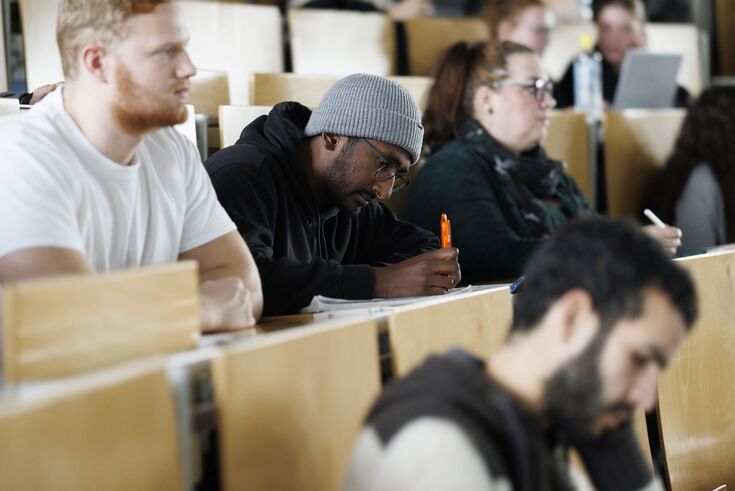The Niederrhein University of Applied Sciences (HSNR) is one of 119 projects selected for the nationwide "Teaching Architecture" funding line of the Innovation in Higher Education Foundation. The university will receive 3.2 million euros in the first funding phase until 2029 for its application "Dein Weg - Lernhindernisse überwinden in den Technikwissenschaften". If the interim evaluation is successful, a further 1.5 million euros would be possible until 2031. The total volume of the funding line is around 480 million euros.
With the successful application, the HSNR is sending a strong signal for the upcoming transformation of the technological sciences. "This success gives our strategic reorientation in the technical sciences the right boost," says University President Dr Thomas Grünewald. "My special thanks go to the project team led by Jens Brandt, Sylvia Ruschin and Alexandra Eßer-Lüghausen as well as all colleagues who made this application possible with great commitment and persuasiveness. Our success - thanks to you!"
The project addresses central challenges of technical science degree programmes. The core idea is to develop a new, skills-orientated teaching architecture that is no longer based on traditional disciplinary logics, but on the students' learning path.
Two central task areas, which are inextricably linked to the project, give the programme additional depth in terms of content: The project aims to promote individual learning paths more strongly. A practical and real-world-oriented design of the study programmes should help to better reach diverse target groups and develop individual potential in a more targeted manner. Project-based learning, socially relevant content and intensive collaboration between teaching staff and students form the basis for a degree programme that promotes self-efficacy and responsibility.
Consistent involvement of students
This is why the application emphasises the consistent involvement of students. They were already involved in the application process and students are also helping to shape measures during project implementation - the teaching architecture is being rethought not for, but together with them.
"The content of our application addresses the central challenges that we have identified with regard to the future viability of technical science degree programmes," explains Prof. Dr Gudrun Stockmanns, Vice President for Studies and Teaching and project manager. "With the funding, we can now consistently continue on the path we have taken - from the integration of the basic subjects into the leading disciplines to consistent project formats and the further development of examination didactics.
In the first project phase from October 2025, new curricula will be developed and tested in selected degree programmes in the fields of engineering and computer science as well as industrial engineering. In the second phase, a transfer to other areas is planned in order to achieve a sustainable structural effect.
At the end of last year, the HSNR launched a comprehensive modernisation process in its engineering disciplines in order to further develop the courses on offer in a future-oriented manner. The aim is to position the university as an innovative and attractive educational centre in the long term and to prepare students even better for the challenges of the transformation processes in the economy and society.
With the Dein Weg project, the Niederrhein University of Applied Sciences is setting standards for future-oriented teaching in the technical sciences - practical, skills-orientated and participatory.


















